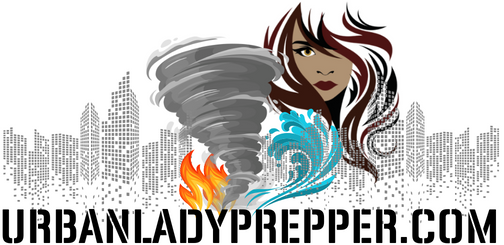Why This Blog and Podcast?
(11 minute read)
Most Prepper podcasts and YouTube videos are about single dudes or family men. There are plenty of female homesteaders, but they are married, with kids, houses, and land. These preppers/homesteaders also tend to live in rural or suburban areas; too few focus on prepping in urban locations, where many Single Moms and Single Females (SMSFs) live. SMSFs are not well represented in the prepper community, and I intend to change that!
What works for other preppers may not always work for SMSFs. Many SMSFs do not have the knowledge, space, or physicality to do the homesteading projects that are all over YouTube. While many women have some of these skills and physical strength, many do not. Women can learn them, of course, but I want to reach the average female who does not have these attributes right now.
You may have thought about prepping, but the information about canning, preserving, gardening, what to have on hand, etc., can be overwhelming. It can be intimidating to inexperienced SMSFs starting in prepping. Even the most basic of these activities cost something, and I know budgets are tight.
Further, if you have seen some of the YouTube videos or the TV series Doomsday Preppers*, it may have turned you off from the concept of prepping, as they tend to represent those on the more extreme end of the preparedness community. Not all preppers are doomsday junkies. This blog and podcast are NOT about fearmongering, paranoia, or hysteria; it’s about being able to see you and your family through a period where the basics may not be available, or it would be too dangerous to try and get.
These are crazy times, and life as we know it is getting more unpredictable. As a single female raised by a single mother, I am responsible for addressing the need to prepare NOW with these two underserved demographics. We can be ready for anything – a natural disaster, civil unrest, and even a zombie apocalypse!
You CAN be a prepper!
You CAN find a way to become more prepared and self-sufficient for yourself and your kids.
You can find the space.
You can find the time.
You can find the funds.
“Why Should I Be Prepping?”
If you ask yourself that, then you have never dealt with a natural disaster that left you without power or water for weeks, or you still feel that the “powers that be” will take care of you when something like that happens.
If you are the former, consider yourself extremely lucky. But you must have been aware of Hurricane Katrina, Super Storm Sandy, and the episodes of civil unrest that have occurred from Portland to Charlottesville. Have you thought about what you would have done if YOU lived in those areas? What actions did you take if you considered being more prepared for such a scenario? Or did you tell yourself, “I don’t have the time or money,” or “That won’t happen here”?
If you are the latter, the disasters of Katrina and Sandy and others should remind you that the “powers that be” were not so powerful. Stranded families, looting, power outages that lasted for months, gas lines, curfews, people fighting over whatever food was left*…it wasn’t pretty, and many areas still have not fully recovered.
With all due respect to your situation and point of view, please understand this – things are not improving.
The weather is getting more extreme, and places that never had to worry about tornadoes, flooding, and earthquakes now have them. Those areas where these disasters occur now have them more frequently. The weather patterns are changing, the sea levels are rising, and the planet is getting hotter, affecting everything, including our food supply. Regardless of why you believe these things are happening, you cannot deny them*. If you do, you are endangering yourself and your family. Please do not let stubbornness or complacency blind you to what is occurring and how it can affect your life and choices.
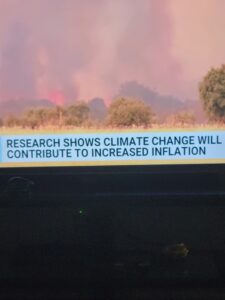
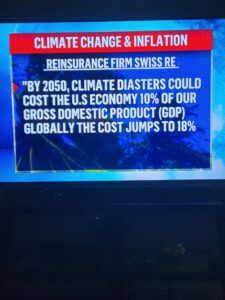
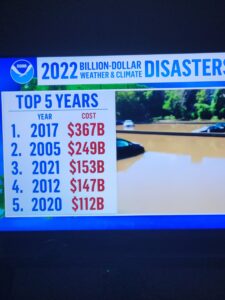
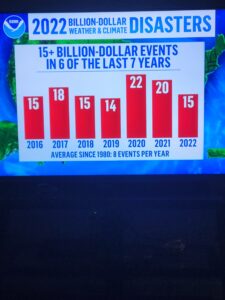
You may have only a few minutes to shelter in place or get out with a tornado*. Can you do it either efficiently or safely in that time frame? In an evacuation, do you know where to go? Do you have transportation/escape? Will you have to go to a shelter? What about your pets?
Mass shootings.
Regardless of your politics, this is happening way too often. People are no longer safe going to school, shopping, or church. It is hard to “keep calm and carry on” when the basic things we used to do without drama are becoming riskier. How are you adapting and decreasing the risk for you and your family?
Civil unrest.
Some peaceful protests can turn violent. Some marches are meant to inflame/incite and can turn deadly; this could happen right outside your door or in your neighborhood. What would you do if this happened? How will you keep your family safe?
Random attacks.
People are losing their minds, and random attacks are becoming more frequent in a divided nation fighting inflation, cost of living increases, disease, and unpredictable employment. How do you address not living in fear but being vigilant as you and your kids go about your day-to-day life?
Food Shortages.
While many people focus on the cost of food, another looming issue is the food shortage that will worsen*. War, extreme weather, and supply chain problems have significantly impacted food production and supply. The cost for farmers and ranchers to run their operations is causing them to make choices that will trickle down to you in the form of higher prices or unavailability*. How are you prepared for this? Are you prepared for this?
Energy Crisis.
If you have been watching the news, you know the energy issues that made for a miserable summer in 2023 worldwide. The record-setting temperatures caused factories to shut down temporarily, rolling blackouts, and government officials urging citizens to cut back where possible. The intense heat had an impact not only on the supply chain but on farmlands*.
You may say, “I realize these things are happening. But I live in a small apartment with two kids. I work hard/have two jobs. I do not have a partner or husband, and my kids’ father is not in the picture or helpful. I don’t know how I can do this.”
I get it. I grew up middle-class in an apartment building with my mom. My parents were separated, and my mom worked two jobs. We weren’t rich, but our family was a great support system for us.
Living in an apartment building, I learned one thing very early. The management would turn the water off whenever work was done in the basement. You might get the notification the day before; sometimes…you did not get a notice. In the morning, there was no worse feeling than turning on the faucet, and nothing came out, or some brownish gurgling stuff trickled out that you didn’t want to touch.
For this reason, any time we emptied a two-liter soda bottle (my family had a hardcore cola habit back then, so we had plenty), we would clean it and fill it with water. We put these bottles on the fridge and under the sink, stopping in their designated spots when we ran out of room. We were NEVER caught without water. To this day, I always have water stored.
When the water was turned off in the apartment, it was usually restored by the evening. But consider that as clean water becomes scarcer, there may be a time when you turn on your faucet, and nothing drinkable comes out (if anything comes out at all). Should an emergency arise, do you have any water stored for cooking, bathing, or drinking? If you think being without potable water is an unlikely scenario, think of Flint, Michigan, or Jackson, Mississippi*.
Living in an apartment building taught me something else – how wasteful people can be with energy. In our apartment, lights were on in every room, and the heat or AC was always cranked high. Energy conservation was discussed in school and broadcast on PSAs during afternoon cartoons. I became more conscious of the energy my family and I were wasting. I began turning the lights off and turning the heat/AC down. My family expressed their annoyance, but they began to understand that just as we knew what it was like to be without water, we had to be more thoughtful about energy. Should energy become rationed, would you be able to adjust? These things were helpful to me when I became a widow in 2011, was on my own, and began “prepping” before it was a thing.
Next: Welcome & My New Life as a Widow/My Entry Into Prepping
https://en.wikipedia.org/wiki/Doomsday_Preppers
https://www.nationalgeographic.com/tv/shows/doomsday-preppers
https://science.howstuffworks.com/nature/natural-disasters/hurricane-katrina.htm
http://news.nationalgeographic.com/news/2008/09/080914-hurricane-ike-ap.html
https://www.csmonitor.com/USA/2012/1103/Hurricane-Sandy-s-darker-side-Looting-and-other-crime
https://www.nbcnews.com/news/us-news/new-york-imposes-gas-rationing-fight-hoarding-panic-flna1c6968298
https://science.nasa.gov/climate-change/evidence/
https://www.who.int/news-room/fact-sheets/detail/climate-change-and-health
Screenshots: Live newcast; two images provided by NOAA (National Oceanic and Atmospheric Administration)
https://www.ers.usda.gov/topics/food-nutrition-assistance/food-security-in-the-u-s/definitions-of-food-security/
https://www.worldbank.org/en/topic/agriculture/brief/food-security-update
https://apnews.com/article/hunger-food-us-increase-inflation-pandemic-report-49fe26f083583d6efa66c6509657a741
https://www.csis.org/analysis/russia-ukraine-and-global-food-security-two-year-assessment
Extreme heat leads to short- and long-term food insecurity… https://academic.oup.com/eurpub/article/32/4/521/6623897https://www.cnn.com/2022/08/17/business/west-drought-farmers-survey-climate/index.html
https://www.cdc.gov/nceh/casper/pdf-html/flint_water_crisis_pdf.html
https://www.clickondetroit.com/consumer/help-me-hank/2024/04/18/10-years-of-flint-water-crisis-how-it-happened-where-things-stand/
https://www.nytimes.com/2024/02/05/us/jackson-mississippi-water-crisis.html
https://apnews.com/article/jackson-water-crisis-federal-intervention-173ae30f9e087ace8fb45c7eac3d3924
